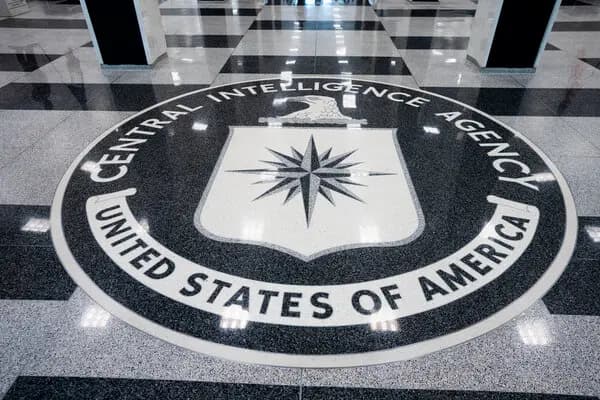We're loading the full news article for you. This includes the article content, images, author information, and related articles.
A class-action lawsuit on behalf of hundreds of Canadians subjected to horrific mind-control experiments, funded by the CIA and the Canadian government from the 1940s to the 1960s, is proceeding to trial, marking a significant step in a decades-long fight for accountability.

MONTREAL, CANADA – A Quebec Superior Court has authorized a class-action lawsuit to proceed against the Canadian government, McGill University, and the Royal Victoria Hospital for their roles in the infamous 'Montreal Experiments'. These experiments were part of the U.S. Central Intelligence Agency's (CIA) top-secret and illegal Project MK-Ultra, a mind-control program that operated from 1953 until its official halt in 1973. The lawsuit, filed in January 2019, represents potentially hundreds of former psychiatric patients who were subjected to brutal, non-consensual treatments at McGill's Allan Memorial Institute between 1948 and 1964.
The experiments in Montreal, known as MK-Ultra Subproject 68, were led by Scottish-born psychiatrist Dr. Donald Ewen Cameron. Patients, many of whom had sought treatment for common conditions like depression or anxiety, became unwitting subjects in Cameron's attempts to erase memories and reprogram personalities. His methods, which he termed "depatterning" and "psychic driving," involved high-voltage electroshock therapy administered at intensities far exceeding the norm, chemically induced comas lasting for months, and massive, repeated doses of psychedelic drugs like LSD. Following this, patients were subjected to looped audio messages for hours on end, sometimes up to half a million times, in an attempt to rebuild their psyche. These procedures often left victims in a childlike state, with many suffering permanent memory loss, psychological trauma, and an inability to lead normal lives.
Project MK-Ultra was born out of Cold War paranoia, specifically the CIA's fear that Soviet, Chinese, and North Korean adversaries were using mind-control techniques on U.S. prisoners of war. In response, the CIA, under Director Allen Dulles, initiated a broad and clandestine program to develop its own brainwashing and psychological torture capabilities. The project involved more than 80 institutions across the U.S. and Canada, including universities, hospitals, and prisons, often operating through front organizations to conceal the CIA's funding and involvement. The program's activities were a profound violation of the Nuremberg Code, an ethical framework established after World War II to govern medical experimentation on humans.
Lana Ponting, one of the lead plaintiffs, was admitted to the Allan Memorial Institute in 1958 at the age of 16 for being "disobedient." She recalls being heavily drugged and subjected to treatments that have caused a lifetime of suffering, including memory loss and depression. The lawsuit alleges that the Canadian government was negligent in funding Cameron's work and that McGill University and the Royal Victoria Hospital enabled the experiments. While the CIA was initially named in the lawsuit, Canadian courts have ruled that the U.S. government has immunity from being sued in Canada. Previous compensation efforts have been limited. In 1992, the Canadian government compensated 77 victims but denied over 250 others, and a small number of victims settled a lawsuit with the CIA in the 1980s without an admission of liability. The current plaintiffs are seeking compensatory damages, though the court has denied the possibility of punitive damages as the events predate Quebec's Charter of Human Rights and Freedoms.
While this case has no direct links to Kenya or East Africa, it serves as a stark, globally relevant reminder of the potential for state-sponsored human rights abuses in the name of national security. The legacy of MK-Ultra informs contemporary debates on torture, medical ethics, and government oversight. The CIA's methods, particularly sensory deprivation, were later detailed in interrogation manuals like the KUBARK manual, highlighting a direct lineage from these experiments to modern torture techniques. For nations worldwide, including Kenya, this historical case underscores the critical importance of robust legal and ethical frameworks to protect citizens from secretive and unaccountable government actions, ensuring that scientific and medical research is never weaponized against the public. The decades-long struggle of the MK-Ultra victims for acknowledgment and justice highlights the enduring trauma inflicted by such programs and the profound difficulty of holding powerful state institutions to account.
Keep the conversation in one place—threads here stay linked to the story and in the forums.
Sign in to start a discussion
Start a conversation about this story and keep it linked here.
Other hot threads
E-sports and Gaming Community in Kenya
Active 9 months ago
The Role of Technology in Modern Agriculture (AgriTech)
Active 9 months ago
Popular Recreational Activities Across Counties
Active 9 months ago
Investing in Youth Sports Development Programs
Active 9 months ago